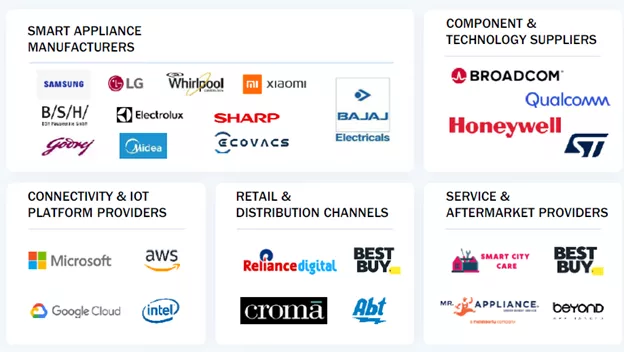The global healthcare RTLS market size is expected to grow from USD 2.3 billion in 2024 to USD 5.7 billion by 2029, at a CAGR of 19.6% during the forecast period. Since ultra-wideband and Bluetooth low energy made a mark recently and are expected to grow exponentially during the forecast period. Hence, companies are involved in developing the best innovative products to lead the marketplace. Fast-paced startups offer a number of innovative solutions based on new RTLS technologies such as UWB, BLE, ZigBee, and RuBee.
Download PDF:
https://www.marketsandmarkets.com/pdfdownloadNew.asp?id=19089515
The market for hardware segment is expected to gain a largest market share during the forecast period.
RTLS solutions comprise hardware components, including the tags or badges attached to an asset or a person for tracking purposes. RTLS badges, tags, and sensory networks are developed to perform in the background and help send locations of equipment, people, and staff accurately and automatically. These tags, periodically, send information back to readers or trackers. A reader communicates with a tag and picks up and processes the signals from the tag, which are then passed on to the middleware—an application software platform that analyzes and correlates this data to provide the real-time exact location.
Wi-Fi segment is expected to hold a substantial market share during the forecast period.
Wi-Fi is one of the most widely used wireless technologies in the RTLS market for healthcare because of its high compatibility, ease of installation, and easy availability. One of the reasons Wi-Fi location systems face wide acceptance is that, in most of the cases, already installed Wi-Fi access points can be used without incurring any additional hardware costs. by Using this approach, either Wi-Fi tags or simply smart devices with internal Wi-Fi radios send signals to all Wi-Fi access points within a range, or vice-versa. Several positioning indicators can be used to calculate the distance from access points depending on the number of access points available. Many players are offering RTLS solutions based on Wi-Fi technology. For instance, AiRISTA (US) offers various asset tags such as 1- button asset tag, 2-button asset tag, and personnel or patient tag, which works on Wi-Fi technology. For instance, 1-button asset tag offered by the company is ideally suited for tracking assets in harsh or outdoor environments using your existing Wi-Fi network.
The environmental monitoring segment is to grow at an impressive CAGR during the forecast period.
Environmental monitoring within healthcare facilities is a critical requirement that touches patient safety, inventory stock care, and quality of care. There is a paramount need to monitor environmental conditions in various parts that include intensive care facilities, storage locations, blood storage, and many others within the hospitals. Monitoring the environment manually is time-consuming, and any inefficiency can result in difficulty in meeting compliance requirements and ensuring optimal storage conditions. RTLS solutions here can be of great help as they can be used for monitoring the environmental conditions of rooms and storage areas such as refrigerators and freezers.
Asia Pacific is expected to hold a significant market share of the RTLS market for healthcare during the forecast period.
The Asia Pacific region has been identified as one of the future key potential markets for RTLS in healthcare, while this regional market is projected to grow at the highest CAGR during the forecast period. Developments in the healthcare sector are being witnessed in Asia Pacific as a number of healthcare facilities start adopting newer technology-based products for better performance and automation of certain processes. Japan is the region's early adopter of RTLS, and has been registering the impressive growth in the healthcare RTLS market. Now, countries such as South Korea, China, and Australia are estimated to turn out as high-growth markets for RTLS in healthcare.
Key Players
The key players in this market include Securitas Healthcare LLC (US), Zebra Technologies Corp. (US), HPE Aruba Networking (US), Impinj, Inc. (US), and TeleTracking Technologies, Inc. (US) and others.

No comments:
Post a Comment